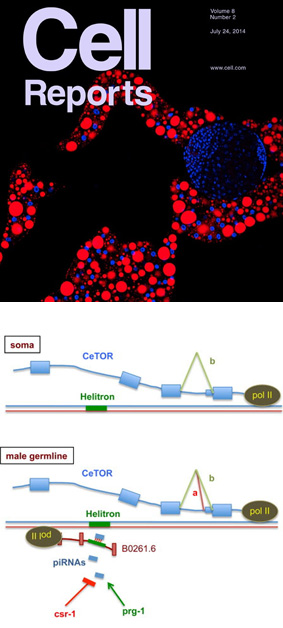Every day more is known about the structure of genomes and their influence on the regulation of gene expression. In researching the components of genomes, the model nematode C. elegans is a pioneer since its genome was the first of a multicellular organism to be sequenced.
The study published in the journal Cell Reports, is the result of collaboration between the Julian Ceron team in the group of chemoresistance and predictors of tumor response and stromal environment at IDIBELL with groups of Ben Lehner and Juan Valcárcel at Centre for genomic Regulation (CRG), Barcelona. Researchers have described the influence of antisense genes and endogenous small interfering RNA (siRNAs) in regulating gene TOR, a highly conserved gene in eukaryotes regulating the growth and metabolism of organisms in response to nutrients.
The study authors have shown that this mechanism affects fertility animal. “If we manipulate the expression of TOR and the balance of its isoforms” said Ceron “we are able to reverse infertility that are epigenetically transmitted between generations of mutated animals.”
Co-option of the piRNA Pathway for Germline-Specific Alternative Splicing of C. elegans TOR. Barberán-Soler S, Fontrodona L, Ribó A, Lamm AT, Iannone C, Cerón J, Lehner B, Valcárcel J. Cell Reports. 2014 Sep 10. pii: S2211-1247(14)00679-2.

